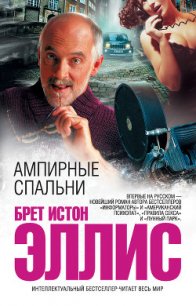High Rise - Ballard James Graham (читаем книги онлайн бесплатно без регистрации txt) 📗
She held out her hands to him. Usually Laing would have rubbed them for her, trying to kindle a little warmth in them, but out of some kind of peculiar loyalty to the dentist he made no effort to help Alice. This petty show of callousness, his declining personal hygiene, and even his deliberate neglect of his health, were elements in a system he made no attempt to change. For weeks all he had been able to think about were the next raid, the next apartment to be ransacked, the next tenant to be beaten up. He enjoyed watching Steele at work, obsessed with these expressions of mindless violence. Each one brought them a step closer to the ultimate goal of the high-rise, a realm where their most deviant impulses were free at last to exercise themselves in any way they wished. At this point physical violence would cease at last.
Laing waited for Alice to subside into half-consciousness. Looking after his sister was taking up more of his energy than he could afford. If she was dying there was little he could do, apart from giving her a terminal gram of morphine and hiding her body before Steele could mutilate it. Dressing up corpses and setting them in grotesque tableaux was a favourite pastime of the dentist's. His imagination, repressed by all the years of reconstructing his patients' mouths, came alive particularly when he was playing with the dead. The previous day Laing had blundered into an apartment and found him painting a bizarre cosmetic mask on the face of a dead account-executive, dressing the body like an overblown drag-queen in a voluminous silk nightdress. Given time, and a continuing supply of subjects, the dentist would repopu-late the entire high-rise.
Carrying the kettle, Laing let himself out of the apartment. The same dim light, pearled by a faint interior glow, filled the corridor and elevator lobby, a miasma secreted by the high-rise itself, distillation of all its dead concrete. The walls were spattered with blood, overlaying the aerosolled graffiti like the tachist explosions in the paintings that filled the top-floor apartments. Broken furniture and unravelled recording tape lay among the garbage-sacks piled against the walls.
Laing's feet crackled among the polaroid negatives scattered about the corridor floor, each recording a long-forgotten act of violence. As he paused, wary of attracting the attention of a watching predator, the staircase doors opened and a man in a flying-jacket and fleece-lined boots entered the lobby.
Watching Paul Crosland stride purposefully across the debris-strewn carpet, Laing realized that the television announcer had just returned, as he did every day, from reading the lunch-time news bulletin at the television station. Crosland was the only person to leave the high-rise, maintaining a last tenuous link with the outside world. Even Steele side-stepped him discreetly. A few people still watched him read the news on their battery-powered sets, crouching among the garbage-sacks behind their barricades, perhaps still hoping that even now Crosland might suddenly depart from his set text and blurt out to the world at large what was happening within the high-rise.
Inside the staircase Laing had set up a dog trap, using a tropical mosquito-net he had lifted from an anthropologist's apartment three floors above. A plague of dogs had descended the building from their breeding grounds on the upper floors. Laing had no hopes of catching the larger dogs in the spring-loaded contraption, but a dachshund or pekinese might become entangled in the nylon mesh.
The staircase was unguarded. Taking a chance, Laing made his way down the steps to the floor below. The lobby was blocked by a barricade of furniture, and he turned into the corridor that served the ten apartments in the northern wing of the building.
Three doors along, he entered an abandoned apartment. The rooms were empty, the furniture and fittings long since stripped away. In the kitchen Laing tried the taps. With his sheath-knife he cut the hoses of the washing-machine and dishwasher, collecting a cupful of metallic water. In the bathroom the naked body of an elderly tax-specialist lay on the tiled floor. Without thinking, Laing stepped over him. He wandered around the apartment, picking up an empty whisky decanter on the floor. A faint odour of malt whisky clung to it, an almost intoxicating nostalgia.
Laing moved to the next apartment, also abandoned and gutted. In a bedroom he noticed that the carpet covered a small circular depression. Suspecting a secret food cache, he rolled back the carpet, and found that a manhole had been drilled through the wooden floorboards and concrete deck to the apartment below.
After sealing the door, Laing lay down on the floor and peered into the room beneath. A circular glass table, by a miracle still intact, reflected his blood-spattered shirt and bearded face, staring up from what seemed to be the bottom of a deep well. Beside the table were two overturned armchairs. The balcony doors were closed, and curtains hung on either side of the windows. Looking down at this placid scene, Laing felt that he had accidentally been given a glimpse into a parallel world, where the laws of the high-rise were suspended, a magical domain where these huge buildings were furnished and decorated but never occupied.
On an impulse, Laing eased his thin legs through the manhole. He sat on the ledge and swung himself down into the room below. Standing on the glass table, he surveyed the apartment. Hard experience told him that he was not alone-somewhere a miniature bell was ringing. A faint scratching came from the bedroom, as if a small animal was trying to escape from a paper sack.
Laing pushed back the bedroom door. A red-haired woman in her mid-thirties lay fully dressed on the bed, playing with a persian cat. The creature wore a velvet collar and bell, and its lead was attached to the woman's bloodied wrist. The cat vigorously licked at the bloodstains on its coat, and then seized the woman's wrist and gnawed at the thin flesh, trying to reopen a wound.
The woman, whom Laing vaguely recognized as Eleanor Powell, made no effort to stop the cat from dining off her flesh. Her serious face, with its blue cyanosed hue, was inclined over the cat like that of a tolerant parent watching a child at play.
Her left hand lay across the silk bedspread, touching a pencil and reporter's note-pad. Facing her, at the foot of the bed, were four television sets. They were tuned to different stations, but three of the screens were blank. On the fourth, a battery-powered set, the out-of-focus picture of a horse-race was being projected soundlessly.
Uninterested in her reviewing, Eleanor teased her bloodied wrist into the cat's mouth. The creature was ravenous, tearing excitedly at the flesh around the knuckle. Laing tried to pull the cat away, but Eleanor jerked at the lead, urging it back on to her wound.
"I'm keeping her alive," she told Laing reprovingly. The cat's attentions brought a serene smile to her face. She raised her left hand. "Doctor, you may suckle my other wrist… Poor man, you look thin enough."
Laing listened to the sounds of the cat's teeth. The apartment was silent, and the noise of his own excited breathing was magnified to an uncanny extent. Would he soon be the last person alive in the high-rise? He thought of himself in this enormous building, free to roam its floors and concrete galleries, to climb its silent elevator shafts, to sit by himself in turn on every one of its thousand balconies. This dream, longed for since his arrival at the high-rise, suddenly unnerved him, almost as if, at last alone here, he had heard footsteps in the next room and come face to face with himself.
He turned up the volume of the television set. A racetrack commentator's voice emerged from the speaker, a gabble of names that sounded like a demented inventory, a list of unrelated objects being recruited to repopulate the high-rise in an emergency transfusion of identity.
"What-? Where's the programme?" Eleanor raised her head, peering disjointedly at the television set. Her left hand scrabbled around for the dictation pad and pencil. "What's he saying?"
Laing slipped his arms under her. He intended to carry her, but her thin body was surprisingly heavy. He was weaker than he had thought. "Can you walk? I'll come back later for the set."
She shrugged vaguely, swaying against Laing like a drunk in a bar accepting a dubious proposition from an old acquaintance. Sitting beside him on the edge of the bed, she leaned an arm on his shoulder, inspecting him with a shrewd eye. She tapped Laing aggressively on the arm. "All right. First thing, though, find some batteries."
"Of course." Her show of wilfulness was pleasantly encouraging. As she watched from the bed he pulled a suitcase from the wardrobe and began to fill it with her clothes.
So Laing took Eleanor Powell and her portable television set back to his apartment. He arranged her on a mattress in the living-room, and spent his days hunting the abandoned apartments for food, water and batteries. The reappearance of television in his life convinced Laing that everything in the high-rise was becoming normal again. When Steele moved on to the richer pastures above, Laing declined his offer to join him. Already Laing had decided to separate himself and his two women from everyone else. He needed to be alone with Alice and Eleanor, to be as aggressive and self-reliant, as passive and submissive as he wished. He had little idea at this early stage of what role he would play with these two women, but whatever he chose he would have to play out within his own walls.
Laing knew that he was far happier now than ever before, despite all the hazards of his life, the likelihood that he would die at any time from hunger or assault. He was satisfied by his self-reliance, his ability to cope with the tasks of survival-foraging, keeping his wits about him, guarding his two women from any marauder who might want to use them for similar purposes. Above all, he was pleased with his good sense in giving rein to those impulses that involved him with Eleanor and his sister, perversities created by the limitless possibilities of the high-rise.



